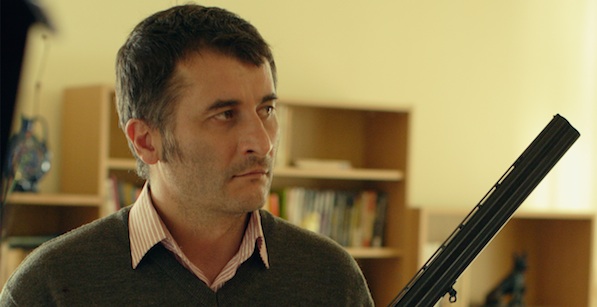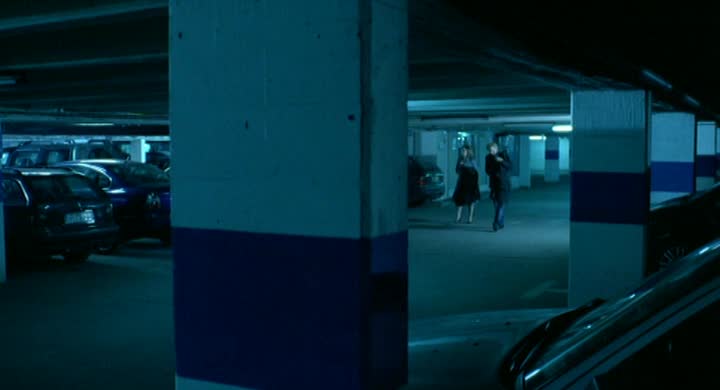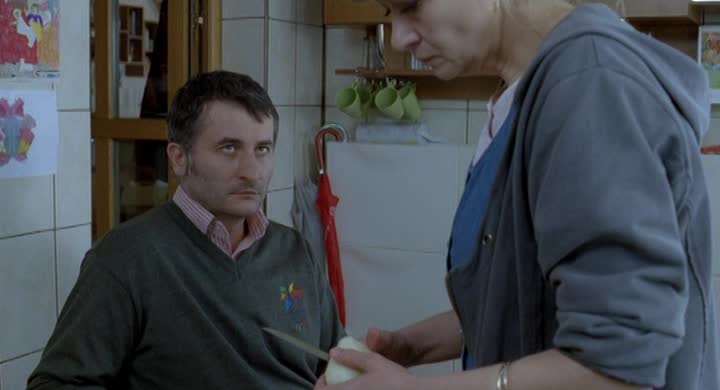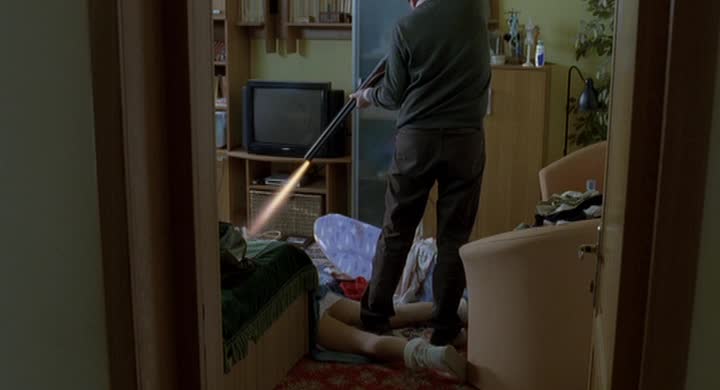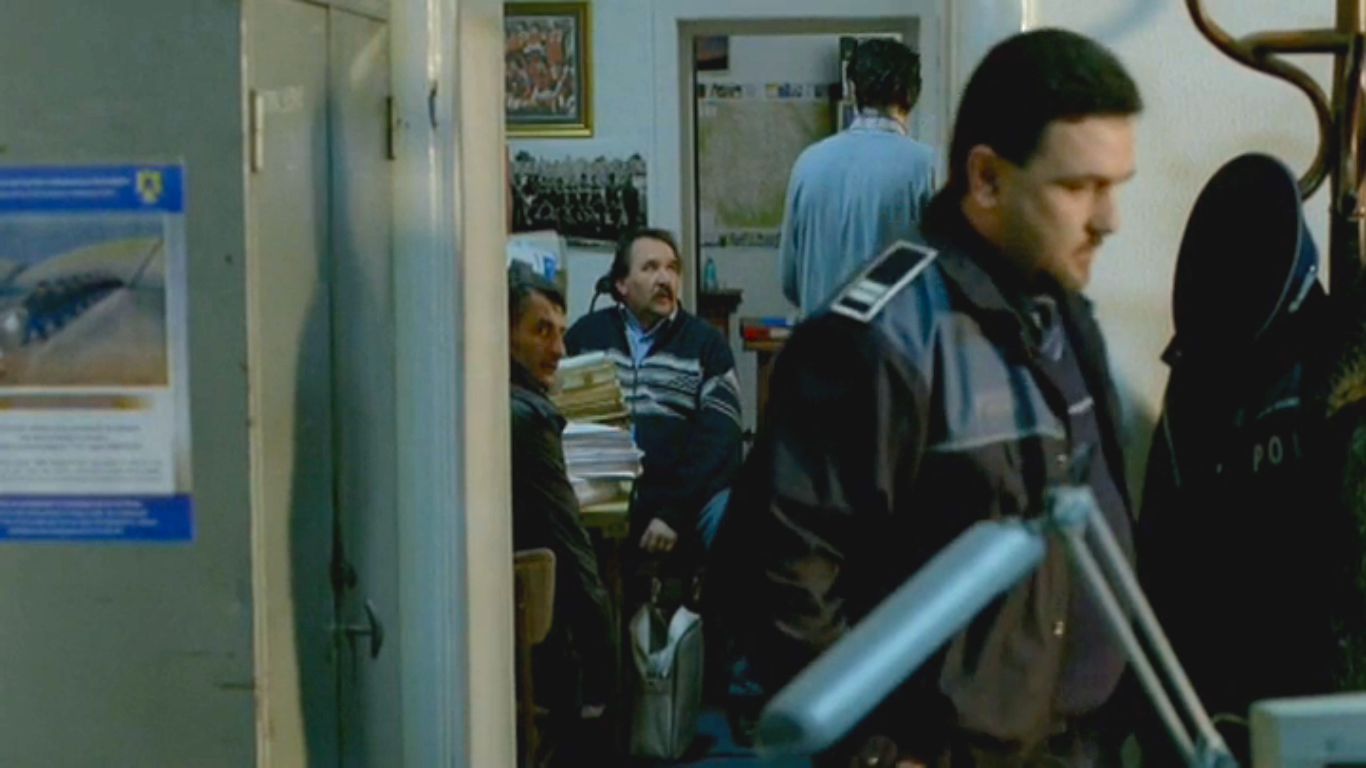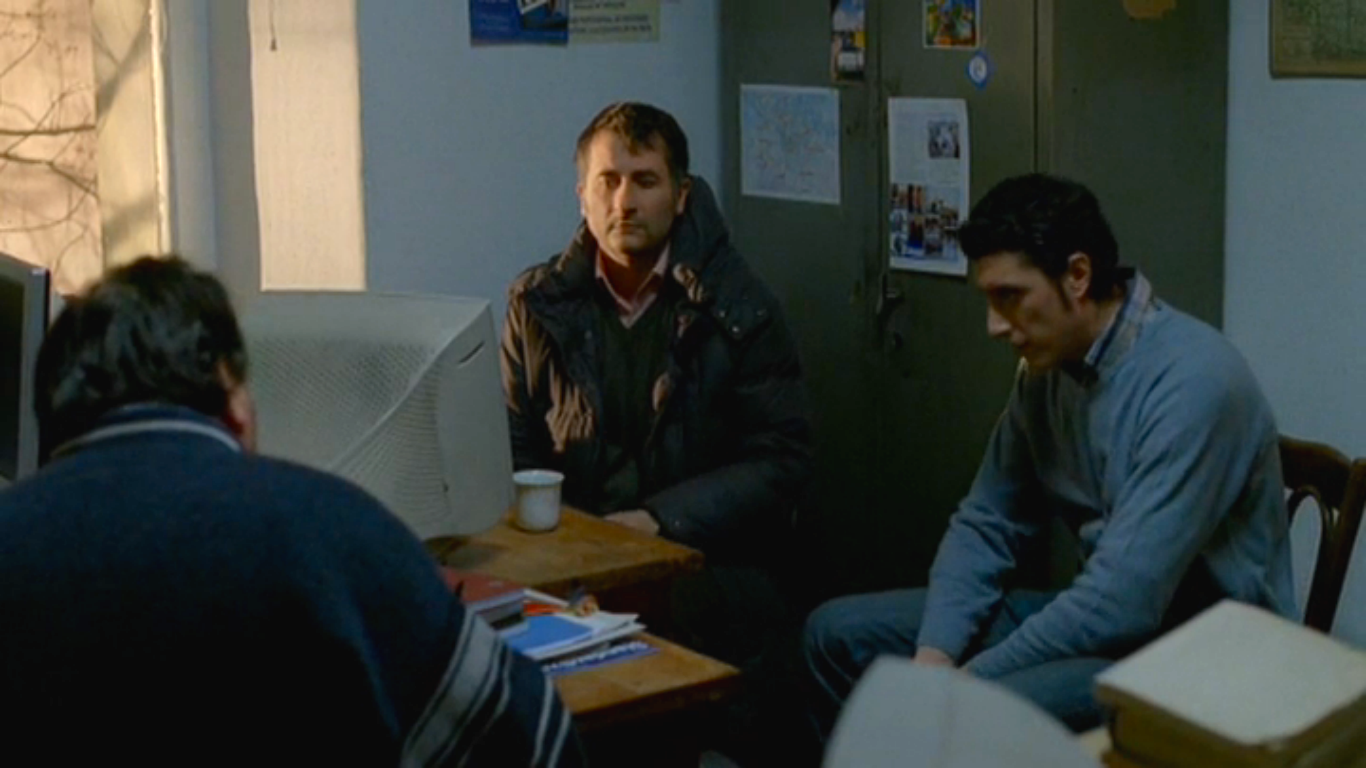The extraordinarily powerful ending of Cristi Puiu’s third feature Aurora (2010) brings a challengingly quotidian film to a painfully unresolved and darkly absurd conclusion. Like several other works from the so-called Romanian New Wave, such as Police, Adjective (2009), 4 Months, 3 Weeks and 2 Days (2007) and Puiu’s own The Death of Mr. Lazarescu (2005), the narrative unfolds here from such an appreciably limited perspective that the meaning of its steadily accumulated details is not always clear.
Only at the very end of Aurora does an epiphany occur. To call it “rewarding” would be a stretch, but the fact that this three-hour epic of interiority ends with its talkiest scene by far might be some indication of the ways in which it aspires to—and achieves—a tone that can retroactively explicate all that precedes it—and it does so without changing its obstinately naturalistic aesthetic. (Needless to say, the following piece reveals significant plot details of this disquieting 180-minute film.)
To recall Aurora’s plot, father-of-two divorcé Viorel Ghenghea (played by Puiu himself) works the heavy machinery in a petrochemical plant in present-day Bucharest. Over the course of a day and a half, he meticulously prepares and carries out two seemingly random killings: with a 12-gauge shotgun, he shoots dead a man and a woman in a parking lot, and then an older couple in their own home. Between and either side of both incidents, Viorel meets with his ex-wife Gina (Clara Voda) and their two daughters.
It isn’t until the end of the film that the identities of Viorel’s victims are revealed: the two people in the parking lot were Gina’s divorce attorney and his colleague, and the older couple were Gina’s parents. Viorel confesses to the killings at a police station after turning himself in. As this scene begins, we see three rooms in the same visual frame; Viorel sits in one room removed from the camera with his back to us. Various police officers clutter the mise-en-scéne as they walk hither and thither, making overlapping chitchat concerning a routine case.
Though Viorel has commanded every moment thus far—sometimes almost reluctantly—here, in what is visibly the film’s busiest scene, he risks becoming a mere background prop amidst the drab backrooms of a bureaucratic network defined by paperwork and small-talk. Standing up with unobtrusive politeness, Viorel asks one of the officers, with some agitation: “Can I turn my mobile on?” Suspiciously innocuous, he cuts a figure of growing alarm. Is he asking out of a sincere need to communicate, or is he reminding these lawmen that he exists?
It’s as if Viorel has turned himself in so that he can experience first-hand what he presumes will be a police grilling of cinematic tension. As both he and we quickly discover, he’s been wrong to presume. Finally settling down to a hot drink, one of the two officers tasked with taking Viorel’s statement asks, in remarkably unmoved fashion, “Who did you say you killed?” Like other scenes, this unfolds in one take. Puiu positions himself in the center of frame, one point of a figurative triangle between two indifferent police officers. Vying for their attention, he looks at any moment like he might dissolve from the image altogether.
Viorel confesses to four murders. Going into details for which he hasn’t been asked, he tells the cops that the woman with whom his ex-wife’s notary was walking in the car park was “not his wife—they didn’t seem close.” We see here, perhaps for the first time (this is the longest stint of dialogue in the film) that the unwavering meticulousness with which Viorel earlier prepared and tested his firearms extends to his speech. It’s not quite pedantry, it’s not quite autism. All the same, Puiu’s character wishes to emphasize his self-awareness (and thus sanity) by impressing the policemen with his erudition and deduction skills.
He is, however, clearly unnerved by the policemen’s bumbling questions, and their emphasis upon the banal, the geographical, the factual. Having primed himself for a psychological probing, for a bruising interrogation, Viorel discovers a brutal truth: that he and his problems are not the center of the world. We’ve been let in on this truth only moments before our protagonist himself realizes it. It’s there in the extended, throwaway exchanges between police officers engaged in petty squabbling around the coffee machine, and the way in which Viorel has to actively remind them he is in the room.
Mutual irritation sets in. To the police, Viorel comes across as a know-it-all, another arrogantly self-vindicating serial killer. To Viorel, all these banal questions pertaining to his birthplace and name are beside the point. The point being his unutterable inner turmoil: “Don’t get me the wrong way,” he says, “you seem to think you follow what I’m saying, and that scares me.”
That too is the final horror of Aurora. Having spent the film baffled by Viorel’s actions, the sudden revelation that he’s killed his ex-wife’s divorce attorney and former in-laws allows us to grasp the gravity of his heartbreak—and yet, in the same instant, we are held at still the same emotional distance, unable to understand just what our humble protagonist is going through.
To say the film invites sympathy for Viorel might be going too far, but we can at least meet him halfway when he claims, in that relatably rational voice, “I believe the justice system cannot comprehend the level of complexity of the relationship I had with my wife.” Indeed, nor can we. And that’s the crux of one man’s devastation in a world wherein an excruciating sense of loss may only be expressed in such destructive terms.
As ultimate as the finality of murder is, the deeper tragedy here, Puiu seems to be arguing, is that marital decline and the prolonged legal fallout with which it culminates is not only unthinkably corrosive, but perhaps socially conditioned in the first place (for the domestic is indeed part of a wider fabric). For Viorel, and perhaps for Puiu, the institutionalization of love is annulled through an unbearably bureaucratic process—one by which human relationships are reduced to the unfathomable horror of legal paperwork.

